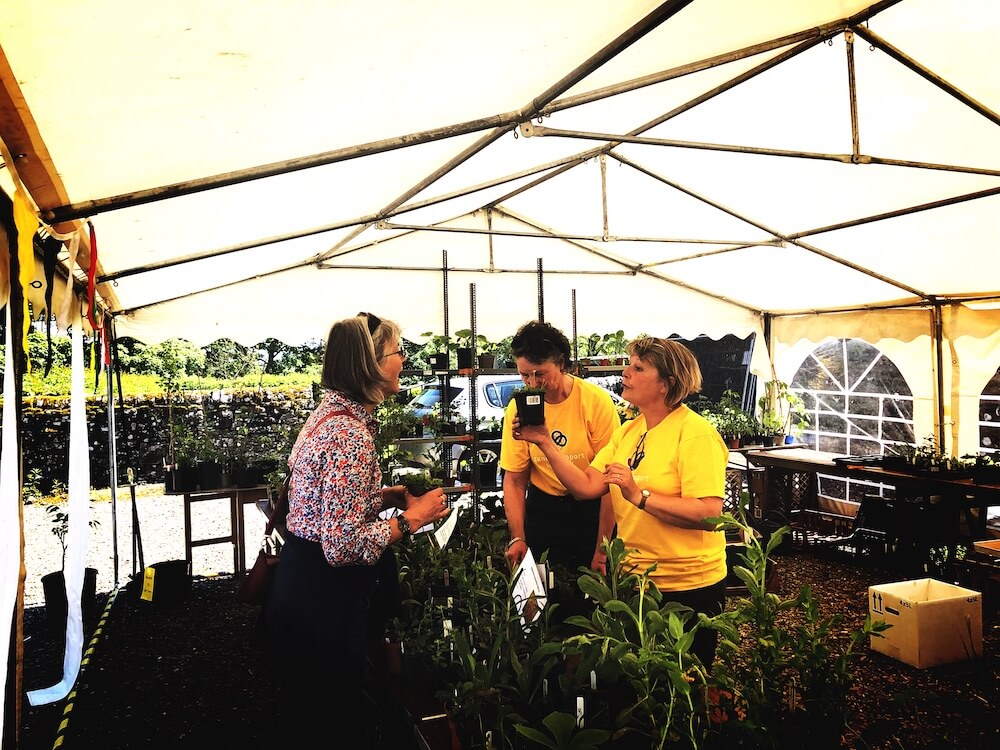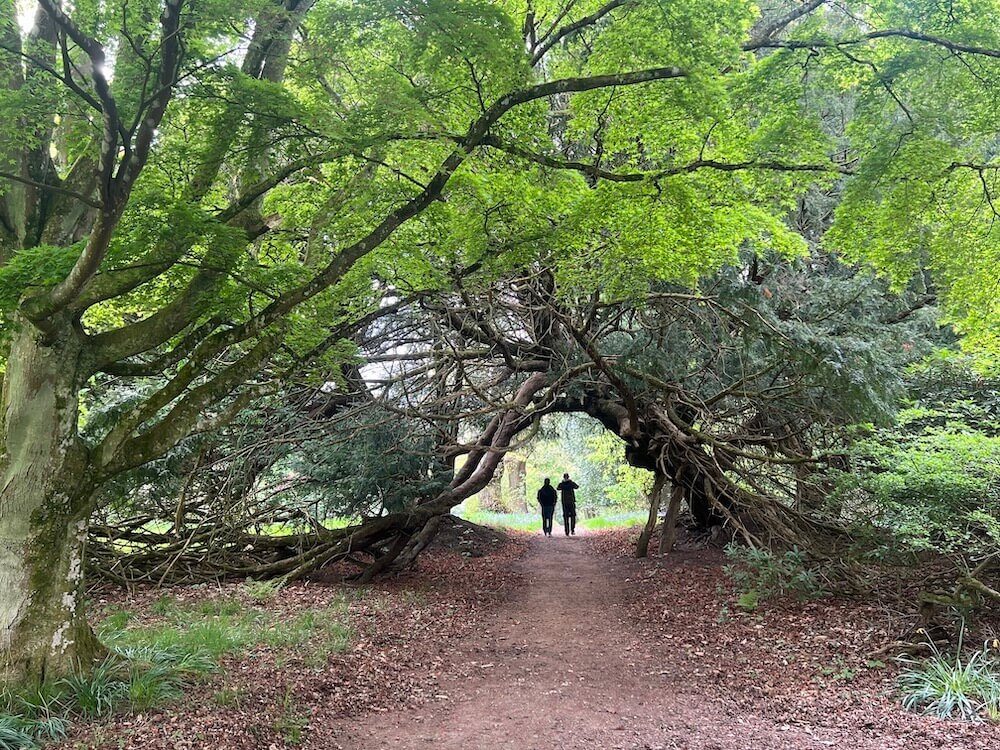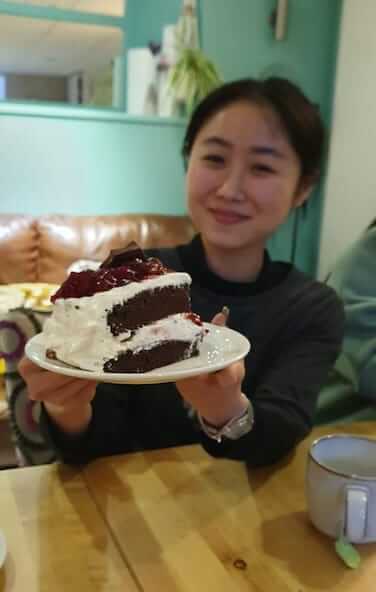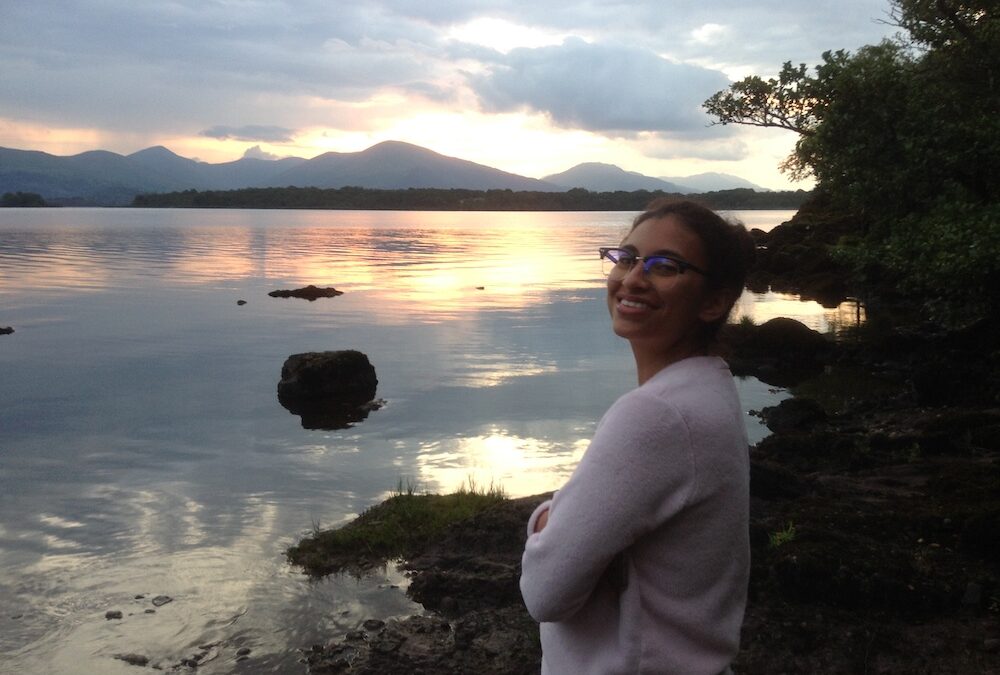Already chosen Scotland for your language holiday?
This blog is for people who know where they want to learn English and now want help choosing the right kind of experience in Scotland — with practical tips on comparing options, understanding what’s on offer, and finding a course that truly fits.
What to ask — and how to see past the marketing
Looking for an English language holiday in Scotland?
It’s easy to be drawn in by beautiful images, glowing words like immersion or authentic experience — and promises of culture, connection and (as you’ll see) even cake.
But what does the learner experience actually look like?
As someone who designs and delivers immersive English holidays, I’ve seen how different the reality can be from the marketing.
So here’s a guide to help you ask the right questions — and choose a course that truly supports your learning and your wellbeing.
→ How big is the group?
Some schools advertise beautiful landscapes, then seat 15 learners in one small classroom all day.
Small groups (ideally 2–5 people) or individual coaching allow you to:
-
Speak more
-
Get tailored feedback
-
Move at your own pace
-
Actually feel seen, heard and supported
Ask:
-
How many learners are on each course?
-
Is the course tailored to individual needs, a certain level or a set curriculum?
The more general the course is, the less you will learn.
There’s a point this stops being an investment and becomes an innefficient use of time and money.

→ What kind of ‘immersion’ is it?
Many schools use the word immersion, but only offer it in name.
Real immersion means more than being in a classroom within an English-speaking country. It means:
-
Having real conversations with a mix of people
-
Experiencing English in meaningful, emotional contexts
-
Learning language that connects to your life
Ask:
-
Are the activities led or accompanied by a language coach?
-
Will I be speaking English out in the community?
-
Are there local people involved, or is the whole experience limited to staff and students?

→ What’s the accommodation like?
How well you rest matters. Feeling comfortable and welcome impacts how much you lean into the process.
Dorm rooms and anonymous homestays can make you retreat. Close-by homes with friendly hosts create connection and ease.
Ask:
-
How far is the accommodation from the classroom?
-
Do I share a home with my teacher or classmates?
-
Who chooses the hosts — and do they know the guests’ needs?
→ Who is actually delivering the experience?
With larger schools, the person selling you the course isn’t the person running it. That can mean:
-
A rotating team of teachers following a rigid curriculum
-
Little chance to build rapport or trust
-
No flexibility to respond to your specific goals
Ask:
-
Will I work with the same teacher or coach throughout?
-
Are the activities taught by someone qualified in both language and culture?

Not All Scottish Language School Holidays are Equal
Yesterday, having just posted on TikTok, another post caught my eye.
The video showed shells on a Scottish beach and talked about how Scotland changes you — the sea, the light, the air. ‘You get more than new words,‘ the caption promised.
I thought, that’s amazing — someone else is doing what I do.
So I clicked on the school profile to see more, and found films of 10 -15 adults packed into one small classroom.
Yes, that school are using marketing language similar to my own: the wonder of Scotland.
Yet the learner experience would be very different.
We actually take you deep into nature!

Cake Friday and other ‘Treats’
That Scottish language school also boasts, “Yay, it’s Cake Friday! Every Friday we have cake.” And there’s a picture of the same classroom — now every adult is sitting at their tables with an identical bit of cake in front of them on a paper plate.
Is that how they break a week’s schedule up?
We don’t have Cake Friday.
→ We have cake when we’re exploring a historic village, and there’s an artisan cake shop (there almost always is in Scotland).
→ Or when we’ve just climbed a hill and we’re feeling like celebrating.
→ Or when one of our friends comes to share their birthday with us.
→ Or every day, because you really like cake.

Language Learning Around You
My favourite is when one of our English guests loves baking. We might spend a rainy afternoon in the kitchen baking and decorating, then invite a couple of local people (homestay hosts, friends, people we’ve visited on the holiday) to eat it with us. (My community love a dinner invitation).
For another person, that sounds like the opposite of a good afternoon, so we’ll put on waterproofs and wellies, and go wading up a river in the rain. Or visit the Burrell Museum in Glasgow (another great cafe).
My point is that it’s up to you.
Cake Friday is a compromise. It’s low-cost and easy to deliver, week in and week out.
If that’s all they have to post about on Social Media, your English experiences are not going to grow much.
“Cake is a poor reward for spending a holiday in a classroom.”
Ruth, 2025
→ How is the landscape used?
Yes, Scotland is stunning — but how do you get into it?
Marketing may show wild beaches or misty hills, but does the course help you:
-
Find mindfulness through movement?
-
Speak English in outdoor, embodied, low-stress ways?
-
Feel connected to the landscape, not just nearby it?
Ask:
-
What outdoor activities are included?
-
Are they designed with language coaching in mind?
-
Are they just “free time” or guided experiences with purpose?

→ Most importantly, how are they going to share all this promised air and light with 15 people at once?
Do they just mean you get free time near a beach? Because that is not harnessing the landscape to transform how someone feels about English.
(We have private guided walks with outdoor well-being coaches, wildlife encounters with experts and activities in the landscape that help you find mindfulness because of the landscape, like our local woodland sauna.

Final Thoughts: What’s the transformation you want?
Language holidays can cost the same, but offer wildly different returns.
One gives you tired grammar and a slice of cake.
Another helps you speak freely, trust your voice, and leave with stories, friendships and renewed confidence.
If you’re choosing a language holiday in Scotland, don’t just ask:
Is this course good?
Ask:
What will taking this course feel like?
Learning doesn’t have to be a compromise anymore.

About Inaccurate Language School Marketing
Promising ‘light’ and ‘air’ and giving a classroom is not just disingenuous, it is exploitative of people who need English skills, and who hope to feel good learning.
It’s hard to find truly alternative language options when the big brands are rehashing the language.
All the photos on this page were taken during a Blue Noun language holiday in Scotland
Our Guides to Choosing a Language Holiday
Expert Help
Choosing an English language holiday can be confusing.
Check out our guides to help you ask better questions and invest well.

